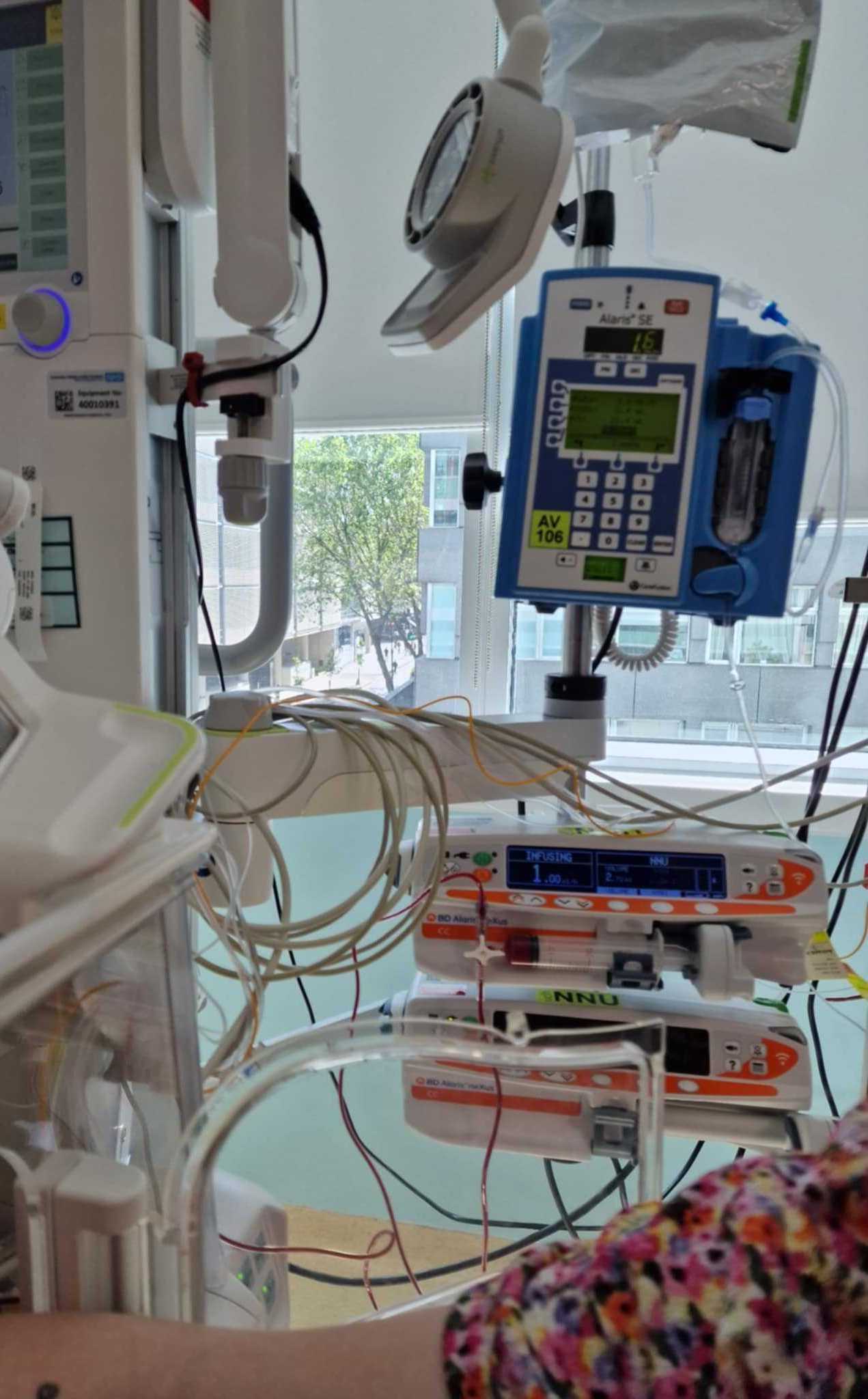Different Level NICUs
In the UK, there is three different levels of neonatal units. Levels 1, 2 and 3.

Level 1 (special care baby unit) SCBU- can support babies who don't need a high amount of medical care. Babies born before 32 weeks of gestation will not be able to stay at a hospital that only has a SCBU and may need to be transferred to another hospital.
SCBU can usually give some extra supplementary oxygen, treat issues like low blood sugars, low temperatures and jaundice. They can also monitor vitals, offer feeding support and can provide short term medical support for babies who need to be transferred to a neonatal intensive care unit, until they can be transferred.
Level 2 (local neonatal unit) LNU- can support most babies born past 27 weeks gestation and born weighing more than 1000g. Sometimes babies that need to be cared for in a NICU can be transferred to a LNU once they are bigger and ready to be cared for there.
LNU can provide short term intensive care for usually up to 48 hours, if it's expected that they will require longer than 48 hours of intensive care for any reason, they will be transferred out to a NICU.
They can care for babies who need non invasive ventilation like CPAP (continuous positive airway pressure) or HFNC (high flow nasal cannula). They can monitor vitals, provide feeding support including tube feeding and nutrition given via a drip (parenteral feeding), they can treat issues like low blood sugars, low temperatures, and support babies who have pauses in their breathing (apnoea's).
Level 3 (neonatal intensive care unit) NICU- can support the sickest of babies, and will be where a very sick baby or a baby born before 27 weeks will need to be cared for.
NICU can provide invasive mechanical ventilation, as well as non invasive ventilation like BIPAP (bi-level positive airway pressure), CPAP (continuous positive airway pressure) and HFNC (high flow nasal cannula).
They can provide all the care that a LNU or a SCBU can, but can also provide care for the much sicker babies. The can provide the best care for babies that are born very early (sometimes as early as 22 weeks gestation) and other babies that need long term support with breathing, feeding and monitoring.
Some Level 3 NICUs have specialist teams for cardiology, gastroenterology, surgery and more. A baby who has been cared for in another level neonatal unit may be transferred to a level 3 if they need any specialist input.
Transferring out to another hospital is sometimes necessary during a babies stay in NICU or even when a baby is still in their mothers uterus
Why does my baby need to be transferred?
There are many reasons why your baby needs to be transferred to another hospital. A few examples of reasons are:
-There are no beds available in the neonatal unit at the current hospital, so your baby needs to be transferred out to somewhere that has the capacity to take care of your baby.
-Your baby is too sick to be cared for at the hospital you are currently at, usually babies who are very sick will need to be transferred to a (level 3) NICU so that their health needs can be best managed.
-Your baby needs a surgery prior to discharge, whether its an emergency case or not, your baby will need to go to a hospital with a specialist surgery team (and then will usually be transferred back to the original hospital after the surgery has been performed and your baby is stable).
-Your baby needs specialist input from a team that your current hospital does not have, this could be for cardiac issues, respiratory issues, genetic issues, gastroenterology issues and many more.
-If your baby was born in or transferred out to a level 3 NICU further away from home, they might be able to step down to a LNU or SCBU for the last portion of their neonatal journey.
Sometimes if a baby is expected to be born very soon and is less than 27 weeks gestation or is expected to need a very high level of care once born, the expectant mother could need to be transferred to a (level 3) NICU so that the baby is in the best place possible when born. This isn't always possible and depends on bed availability for both mum and baby, ambulance transfer availability and the speed of the mother's labour.
This is called an 'in-utero transfer'.
What is transitional care (TC)?
On top of the 3 level neonatal units, sometimes a hospital has a transitional care ward. This ward is usually for babies who are almost ready to go home but may need some observations for a period of time, some antibiotics, blood sugar monitoring, treatment for neonatal jaundice or help establishing feeds.




